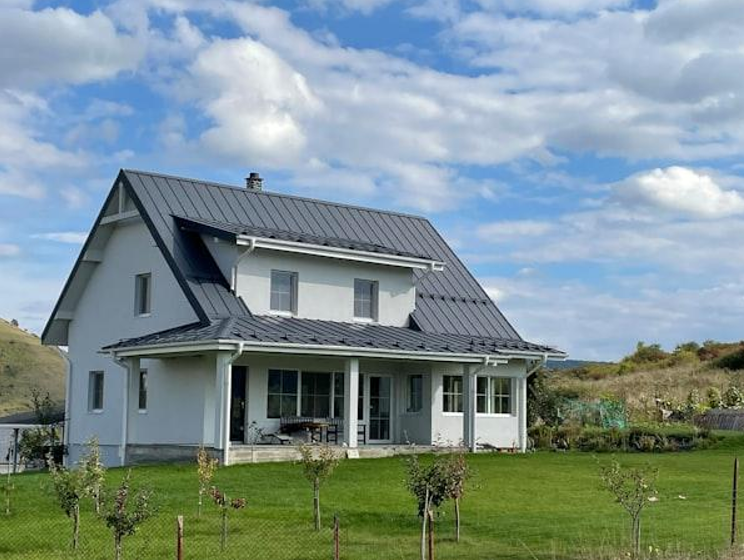Which One is Better For Construction, Natural Gas or Propane
The fuel that you use to ensure that you can complete a construction project is just as important as the other materials that you are using to complete the building itself. You need to be sure that the energy sources that you are using to complete the job are safe, effective, and affordable. Each construction location will offer up challenges with regard to fuel, and you need to be sure that you understand what your options look like at each site.
Natural gas vs propane is the most common conundrum for construction sites. You might have access to both in the area of your current project, which means that it can come down to cost and efficiency when determining which one is the right choice. The more you know about these options for your construction work, the more likely it is that your job will progress smoothly.
The Differences Between Propane and Natural Gas
When you are looking at propane versus natural gas, you need to consider a variety of factors that make each of them a good choice. The differences between them can help you to decide which option is the right one for your needs.
Both are classified as clean-burning fossil fuels. However, the process of storing, delivering, and burning them is different. You should know about the logistics of using both sources of fuel before you pick one.
Natural gas has to be delivered via a centralized pipeline. It cannot be brought into the area of a construction project if it is not already accessible in the area where you are building. This is an important limiter for your project in most cases, and it can mean that natural gas is never an option for your job site.
Propane is stored in tanks and can be delivered via truck. This is a more flexible fueling option and the most common choice for off-the-grid construction jobs. Developing in locations that do not have access to other services yet might mean that propane is your only option due to the lack of availability of natural gas.
If you have both fuel options in the area of your site, you should look at the cost to use both fuels, the ease with which you can access them, and the needs of your job site to decide which fueling option is the right choice for your budget and your build.
Energy Efficiency Can be a Key Consideration
When you do have the choice to use either propane or natural gas, the choice between them might also come down to energy efficiency. You will be able to get far more efficiency when fueling with propane in most cases. Compared to natural gas, this source of fuel will deliver twice the energy per cubic foot that natural gas can offer. In colder climates, this might be the only viable option due to efficiency alone.
For longer-term or high-demand projects, securing reliable equipment such as industrial generator rental can ensure consistent power output without compromising cost-efficiency. This option supports continuous operation on large construction sites where stable energy performance is crucial.
When equipment is running for a long time each day, however, you might find that either of these fuel sources is viable due to the operational demands of the job site. Propane does have a higher BTU, which could offer higher performance and lower fuel consumption over time, but the difference might be negligible when you run the numbers.
In many cases, convenience is the order of the day, and most construction sites will opt for the fuel option that is the most convenient and easiest to access. Natural gas will almost always be cheaper per unit than propane, but that is not always the main determinant when it comes to picking one source over another.
Compliance and Safety Standards
Both propane and natural gas are governed by safety standards and regulations when they are in use. Your job site will have to follow all of these regulations when they are operating, no matter what. Natural gas will require that specific gas meter placement, pipeline installation, and pressure testing processes are followed. Propane will necessitate tank installation, ventilation, and proper venting.
Both types of fuel will need to be made accessible and then will need to be signed off on by an inspector. You will need to consider if you can provide proper maintenance for each source of fuel as well, since you will be using these sources for the duration of the project. In many cases, the access that you have set up for construction purposes can be utilized when the project is complete as well.
If you are building homes, the residents’ houses can be connected to the source of fuel that you have used. Commercial companies might also use the connections that you have set up once the build is complete and they are ready to open their doors for business. You can save time by ensuring that they are properly set up and maintained.
Propane and Natural Gas Can be Perfect Fueling Solutions for Construction
If you are looking at your fuel options for construction work, natural gas and propane are almost always the top two choices that you need to pick between. You will want to be sure that you are looking at the logistics of using the fuels in question, and you should consider how many hours of each day you will need to be able to access the benefits of these fuels. In some cases, the low cost of natural gas might be offset by the convenience of propane or vice versa. Always be sure as well that you are thinking about best practices and being able to maintain safety with regard to propane or natural gas on site.
These are both highly effective fueling options, but you might not always have access to both. In those cases, the decision is made for you. When you do have the chance to choose between these two kinds of fuel, you should be aware of the pros and cons of each, as well as the costs that might impact your choice between them.









